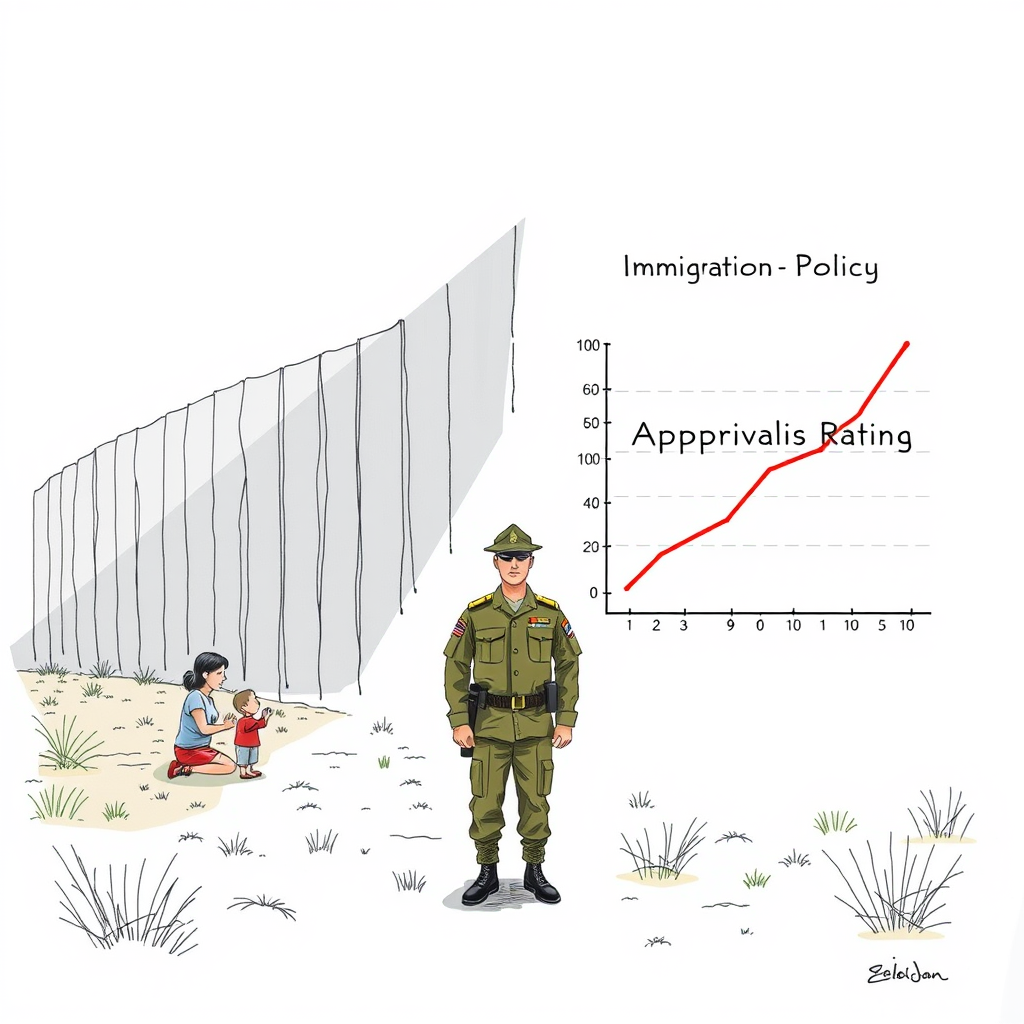Trump’s Immigration Strategy: Is It Paying Off?

President Trump’s administration is framing recent immigration enforcement actions, particularly those unfolding in Los Angeles, as a fulfillment of his campaign promises. Polling data suggests a potential shift in public perception, with a CBS News poll indicating 54% approval of Trump’s deportation policies and a growing trust in the Republican Party’s handling of immigration issues. This appears to be bolstering the administration’s strategy of heightened enforcement.
However, the approach is proving controversial. While officials maintain the focus is on removing criminal elements, reports from the ground, notably from California Governor Gavin Newsom, paint a different picture. Newsom has highlighted instances of U.S. citizens, including a pregnant woman and young children, being caught in the sweeps, leading to family separations and widespread disruption.
The deployment of National Guard and active-duty troops to the border and interior, despite objections from local leaders who state they are unnecessary, underscores the administration’s commitment to a visible and forceful response. The strategy represents a significant gamble by President Trump, betting that a hardline stance on immigration will resonate with voters.
Whether this approach will ultimately prove successful remains to be seen. While the polling numbers offer a snapshot of current sentiment, the human cost of these policies – the stories of separated families and the disruption to communities – cannot be ignored. The administration’s focus on statistics risks obscuring the real-world impact of its actions, and a sustained reliance on enforcement alone is unlikely to address the complex challenges of immigration comprehensively. It’s a politically calculated move, but one that demands careful scrutiny of both its effectiveness and its ethical implications.